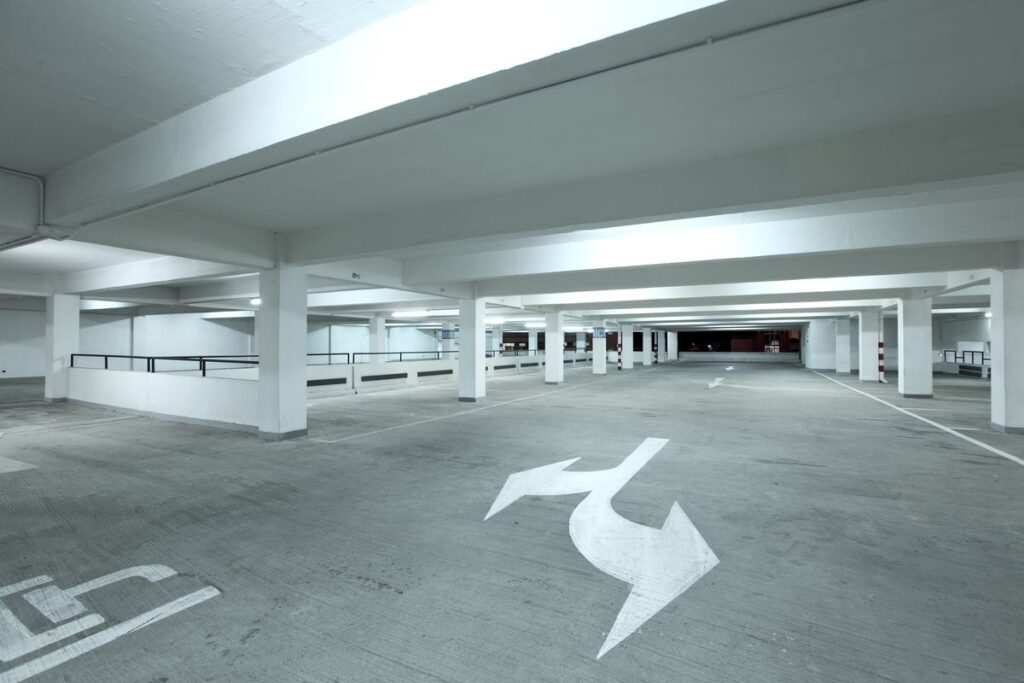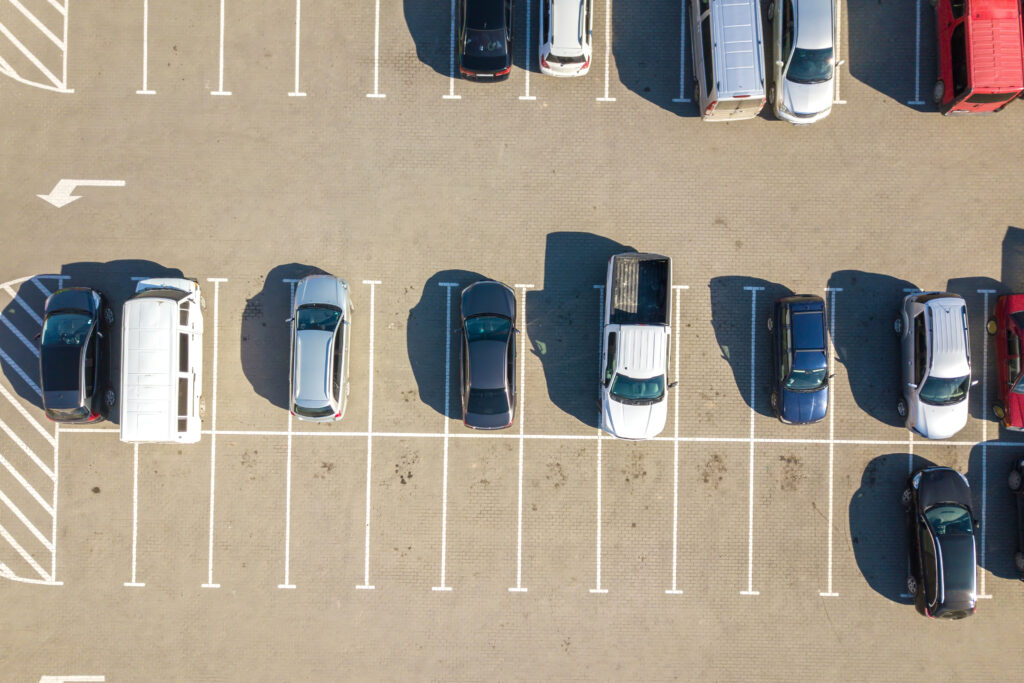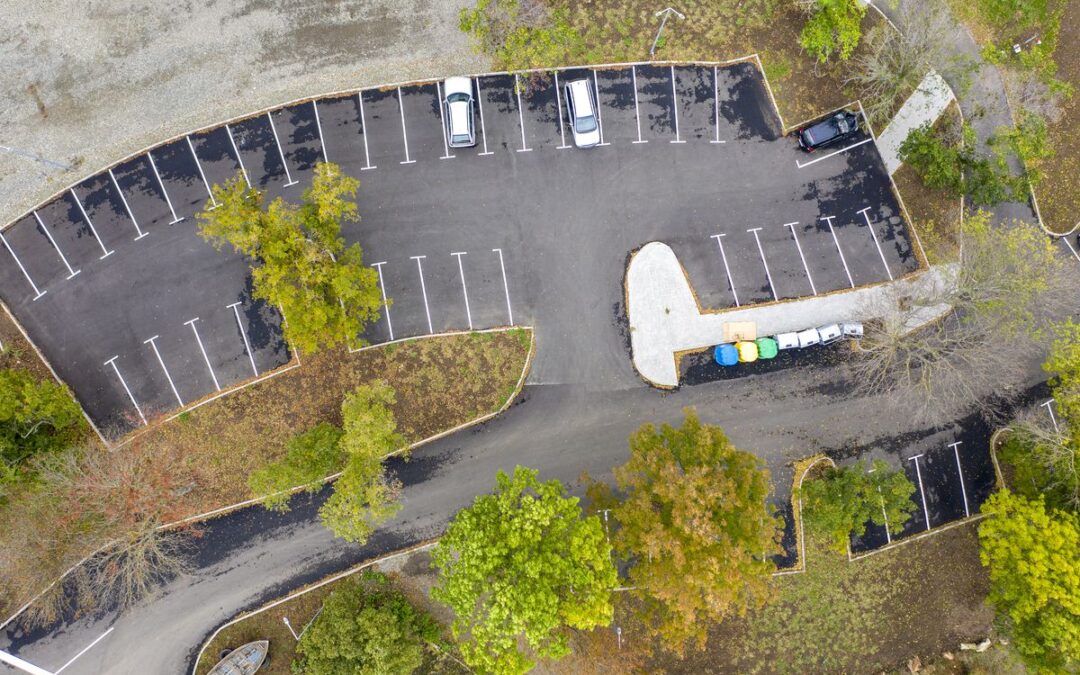Parking lot car accidents in Georgia are more common than most drivers realize. These incidents range from minor fender benders to more serious collisions involving pedestrians. Understanding the nuances of parking lot accidents is crucial for any driver in Georgia. This blog will look into what you need to know about parking lot accidents, from determining fault and understanding Georgia laws to navigating insurance claims and seeking legal assistance. Whether you’re a victim, a liable party, or a witness, this blog offers valuable insights to help you navigate these often-overlooked traffic incidents.
Understanding Parking Lot Accidents in Georgia
Parking lot accidents in Georgia, though often overlooked, can lead to significant injuries and property damage. Understanding their common causes, types, and the applicable state laws is essential for any driver.
Common Causes and Types of Accidents
One of the primary causes of parking lot accidents in Georgia is distracted driving. Drivers focused on their phones, GPS devices, or other distractions are less aware of their surroundings, increasing the risk of collisions. Speeding is another major factor. Despite the relatively low speed limits in parking lots, some drivers exceed these limits, leading to accidents. Additionally, failing to yield the right-of-way at parking lot intersections or to pedestrians can result in accidents.
The types of collisions that commonly occur in parking lots include backing-up accidents, which happen when a driver is reversing out of a space and doesn’t see an approaching vehicle or pedestrian. Collisions at intersections within the lot are also common, especially when drivers ignore stop signs or fail to yield. Furthermore, parking lots are high-risk areas for accidents involving pedestrians. Drivers may not notice people walking behind or in front of their vehicles, especially if they are distracted or speeding.
Georgia Laws Applicable to Parking Lot Car Accidents
In Georgia, specific traffic laws apply to parking lots, which play a crucial role in determining fault in accidents. The state’s rules on right-of-way dictate that drivers must yield to pedestrians and to vehicles that have the right-of-way. For instance, a driver pulling out of a parking space must yield to oncoming traffic.
Speed limits in parking lots, though not always posted, are generally understood to be lower than on public roads. Drivers are expected to drive at a safe speed considering the crowded nature of parking lots. Pedestrian safety is also a significant concern under Georgia law. Drivers are required to yield to pedestrians and exercise due care to avoid hitting them.
Determining Fault in Parking Lot Accidents
In parking lot accidents, determining who is at fault is a critical aspect of resolving insurance claims and potential legal disputes. Understanding the role of negligence and how Georgia’s comparative fault system applies is essential for anyone involved in such incidents.
The Role of Negligence
Negligence in parking lot car accidents in Georgia refers to the failure to exercise the level of care that a reasonably prudent person would under similar circumstances. In these scenarios, fault is typically assigned to the party whose negligence caused the accident.
Examples of negligent behaviors in parking lots include:
- Distracted Driving: This includes using a phone, adjusting the radio, or any other activity that takes the driver’s attention away from driving.
- Speeding: Driving at an excessive speed in a parking lot, where lower speed limits are expected due to the close proximity of cars and pedestrians.
- Failing to Yield: Not giving way to pedestrians or other vehicles when required, such as when exiting a parking space or at marked crosswalks within the lot.
- Ignoring Parking Lot Signage: Failing to observe and adhere to the posted signs, like stop signs or directional arrows.
In each of these examples, a driver’s failure to act responsibly can be considered negligent, making them potentially liable for any resulting accidents.
Georgia’s Comparative Fault System
Georgia follows a modified comparative fault system, which plays a significant role in parking lot accidents. Under this system, each party involved in an accident can be assigned a percentage of fault. The amount of compensation one can recover is reduced by their percentage of fault. However, if a party is found to be 50% or more at fault, they are barred from recovering any damages.
In parking lot accidents, fault might be shared between parties. For instance, if one driver was speeding while another was distractedly backing out of a parking space, both might be found partially at fault. Suppose Driver A is deemed 40% at fault for speeding, and Driver B is 60% at fault for backing out without looking. In this case, Driver A can recover damages, but those damages would be reduced by 40% due to their share of the fault.
This system underscores the importance of gathering evidence and presenting a clear account of the accident. It also highlights why understanding the specifics of Georgia’s comparative fault system is crucial for anyone involved in a parking lot accident, as it directly affects the legal and financial outcomes of such incidents.
Insurance Claims and Parking Lot Accidents
Navigating insurance claims following a parking lot accident in Georgia can be a complex process. Understanding how to file a claim effectively and deal with insurance companies is crucial for a smooth resolution.
Filing a Claim
When you’re involved in a parking lot accident in Georgia, the first step is to file an insurance claim. Here’s a guide to help you through this process:
- Gather Necessary Information: Collect the contact and insurance information of the other driver involved. Note the make, model, and license plate of their vehicle. If there are witnesses, get their contact details too.
- Document the Scene: Take photos of the accident scene, including vehicle positions, damages, and any relevant signs or markings in the parking lot. This visual evidence can be crucial.
- File a Police Report: While not always required for minor accidents, filing a police report can be beneficial. It provides an official record of the incident, which can be helpful if there are disputes about what happened.
- Contact Your Insurance Company: Inform your insurer about the accident as soon as possible. Provide them with all the collected information and the police report, if available.
- Contact A Personal Injury Lawyer At Rebecca Kay Sapp Law Firm: Even small injuries may be entitled to compensation. It’s important to have experts on your side which is why contacting Rebecca Kay Sapp Law firm is essential to your parking lot incident.
- Understand Your Coverage: Be aware of your policy details. Personal Injury Protection (PIP) can cover medical expenses and lost wages, regardless of who is at fault. Property Damage Liability covers damages you may have caused to another vehicle.
Dealing with Insurance Companies
Dealing with insurance adjusters requires a careful approach:
- Avoid Admitting Fault: Be factual about the incident but avoid admitting fault or making statements that could be interpreted as such. Fault will be determined after a thorough investigation by the insurance companies.
- Gather Sufficient Evidence: Present all collected evidence, including photographs, witness statements, and the police report. This documentation will support your version of events.
- Understand the Value of Your Claim: Be aware of the extent of your damages, including repair costs and medical expenses, to ensure you receive a fair settlement.
- Be Prepared for Disputes: Disputes over fault are common in parking lot accidents, especially in cases where liability is not clear-cut. Be prepared for a back-and-forth negotiation process.
- Seek Legal Advice if Necessary: If you’re facing challenges or feel the settlement offer is unfair, consider consulting with a personal injury attorney experienced in handling parking lot accident claims.
Parking lot accident claims can present unique challenges:
- Disputes Over Fault: These accidents often occur in private spaces with no clear traffic signals, making fault determination more complex.
- Minor Damage Misconceptions: There’s a tendency to underestimate claims involving minor damages, but even small repairs can be costly.
- Injuries Manifesting Later: Sometimes, injuries from minor accidents become apparent only days later. Ensure any medical examinations and reports are thorough and timely.

What To Do To Help Prevent Parking Lot Car Accidents
Parking lot car accidents, though common in Georgia, can be preventable. By adopting safe driving practices and leveraging modern technology, drivers can significantly reduce the risk of these incidents. Understanding the role of parking lot design and signage is also crucial in promoting overall safety.
Safe Driving Practices in Parking Lots
- Maintain a Low Speed: Always drive slowly in parking lots. This gives you more time to react to unexpected obstacles, such as a car pulling out of a space or a pedestrian crossing your path.
- Be Vigilant for Pedestrians: Pedestrians can be difficult to see, especially in crowded or poorly lit parking lots. Always be on the lookout for people walking to and from their cars.
- Use Turn Signals: Just like on the road, use your turn signals to indicate your intentions to other drivers and pedestrians. This simple act can prevent many misunderstandings and accidents.
- Park Correctly: Ensure your vehicle is properly parked within the designated space. Poorly parked cars can cause obstructions and narrow the driving lanes, increasing the risk of accidents.
- Check Mirrors and Blind Spots: Before backing out or moving in a parking lot, check your mirrors and blind spots. A quick glance can make all the difference in spotting an approaching vehicle or pedestrian.
- Follow Parking Lot Signage: Adhere to the directional arrows and abide by all posted signs, including stop signs and speed limits. These are designed to manage traffic flow and enhance safety.
What to Do Immediately After a Parking Lot Accident
Parking lot accidents, while often less severe than road accidents, still require prompt and careful action. Knowing what to do in the immediate aftermath can protect your legal rights and ensure your safety.
Steps to Take at the Scene
- Ensure Safety: First, make sure everyone involved in the accident is safe. Move vehicles out of the traffic flow if possible, but only if it’s safe to do so. Turn on hazard lights to alert other drivers.
- Check for Injuries: Quickly assess if anyone is injured. If there are any injuries, no matter how minor they seem, call 911 immediately.
- Exchange Information: Exchange contact and insurance information with the other driver. This includes names, addresses, phone numbers, insurance company names, and policy numbers. If the other driver is uncooperative, note their vehicle’s make, model, and license plate number.
- Document the Scene: Use your smartphone to take pictures of the accident scene, including vehicle positions, any visible damage to the cars, and surrounding areas like parking lot signs or markings.
- Gather Witness Statements: If there are witnesses, ask for their account of the incident and collect their contact information. Witness statements can be crucial in determining fault.
- Report the Accident: If the accident is serious, involves injuries, or there is significant property damage, report it to the police. A police report can be an important piece of evidence for insurance claims or legal proceedings.
Seeking Medical Attention
Even if you feel fine, it’s important to seek medical attention after a parking lot accident. Adrenaline can mask pain and injuries can manifest hours or even days later. Consider the following:
- Immediate Medical Evaluation: Visit an emergency room, urgent care, or your primary care physician as soon as possible. Explain that you’ve been involved in an accident.
- Documenting Injuries: Medical records serve as official documentation of your injuries and are critical in insurance claims and potential legal cases. They provide a link between the accident and your injuries.
- Impact on Claims: Insurance companies often scrutinize claims for injuries. Without a medical record, it can be challenging to prove that your injuries are the result of the accident.
- Legal Implications: If you decide to pursue a personal injury claim, having a timely and thorough medical evaluation strengthens your case. It demonstrates that you took the necessary steps to understand and treat your injuries.

Navigating the Aftermath of a Parking Lot Accident
Dealing with the aftermath of a parking lot accident involves several steps, from repairing your vehicle to recovering from any injuries and considering the long-term implications.
Repair and Recovery
- Vehicle Repairs:
- Assessment and Estimates: Have your vehicle assessed by a professional to understand the extent of the damage. Obtain repair estimates from a few reputable auto repair shops for comparison.
- Insurance Claims: Notify your insurance company about the accident and submit the repair estimates. Understand your policy’s coverage, including whether it covers the type of damage your vehicle sustained.
- Choosing a Repair Shop: Select a repair shop that is trusted and certified. Some insurance policies may require you to use a repair shop within their network.
- Rental Car: If your insurance policy includes rental coverage, arrange for a rental car while your vehicle is being repaired.
- Recovering from Injuries:
- Physical Recovery: Follow through with all medical advice and treatment plans. This may include physical therapy, medication, or other prescribed treatments.
- Emotional Recovery: Accidents can be traumatic. Pay attention to your emotional and mental health. Seek support from family, friends, or professional counselors if you’re experiencing anxiety, stress, or other emotional issues post-accident.
- Documenting the Process: Keep a record of your recovery process. This includes medical appointments, treatments, and any changes in your physical or emotional state.
Long-Term Considerations After The Accident
- Insurance Premiums:
- Potential Increase: Be prepared for the possibility of increased insurance premiums, especially if you were at fault. Insurance companies may view you as a higher risk following an accident.
- Shopping Around: If your premiums increase significantly, it might be worth shopping around for new insurance quotes to ensure you are getting the best deal.
- Impact on Driving Record:
- Points System: Understand that accidents can affect your driving record. In Georgia, accidents can lead to points on your license, especially if you were at fault.
- Maintaining a Clean Record: Practice safe driving habits to avoid future incidents. Consider taking a defensive driving course, which can sometimes help reduce points on your driving record.
- Legal Implications:
- Future Claims: Be aware that having an accident on your record can impact future claims. Insurance companies may scrutinize claims more closely.
- Legal Advice: If you face any legal challenges as a result of the accident, consult with a personal injury attorney at Rebecca Kay Sapp Law Firm.
Conclusion
Navigating the complexities of parking lot car accidents in Georgia requires a comprehensive understanding of various aspects, from immediate actions to long-term considerations. Whether it’s understanding the common causes and types of accidents, determining fault under Georgia’s comparative fault system, dealing with insurance claims, or ensuring proper vehicle repair and personal recovery, each step is crucial in effectively managing the aftermath of such incidents.
Remember, safety should always be your first priority. Practicing safe driving habits, being aware of your surroundings, and utilizing available technology can significantly reduce the risk of parking lot accidents. However, should an accident occur, it’s important to stay calm, gather necessary information, document the scene, and seek medical attention even for minor injuries.

